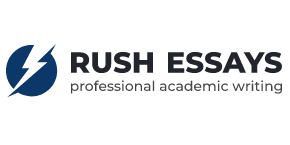Top 5 Essay Writing Services
| Position | Writing Service | Average Rating | Best Features | Prices | |
|---|---|---|---|---|---|
| 1 | PaperHelp.org |
Overall rating:
5
out of 5 based on
20 reviews.
|
|
from 10$ per page |
Visit Wesite More Info |
| 2 | APapers.net |
Overall rating:
4.9
out of 5 based on
19 reviews.
|
|
from 9$ per page |
Visit Wesite More Info |
| 3 | First Writing Service |
Overall rating:
4.8
out of 5 based on
17 reviews.
|
|
from 9$ per page |
Visit Wesite More Info |
| 4 | Buyessayfriend.com |
Overall rating:
4.8
out of 5 based on
16 reviews.
|
|
from 9.97$ per page |
Visit Wesite More Info |
| 5 | Rush-essays.com |
Overall rating:
4.8
out of 5 based on
14 reviews.
|
|
from 9,97$ per page |
Visit Wesite More Info | Check Full List of Services |
Paper Help from Experts: Finish Your Essay in One Day
To buy a quality essay online you need to find a trustworthy college paper writing service. When you buy such services, money is not the only thing you risk,you risk your academic success. This means that if you choose the wrong company, you will not receive your essay in time and you still lose your money. So what is the solution?
If you still have not found the company that is satifactory, reviews of such services can be very helpful. We have gathered reviews of the best services that assist students with writing so you can choose which one to trust. We have checked them for quality and reliability and reviewed their ordering process and prices.
How to Identify a Genuine Writing Helper Online
The main goal any student has when ordering papers is to receive a qualitative result that is worth spending money on. When you buy academic writing services, you expect that the writer will deliver top-quality work that will be original and delivered in time. But Google offers you multiple suggestions when you search for your options,and it is not the best idea to choose the first company and entrust your assignments to them.
Here are several tips to help you find a good, reliable service:
- Our website will provide you with detailed descriptions and evaluations of companies that offer paper writing help to students. Check those reviews before you place an order. Dedicate enough time to research. It may take about an hour or more for you to look through reviews, and make a choice.
- The previous step will give you a list of services to choose from. Visit them and read the terms. The terms must be clear and protective of you. Consider if the website is user-friendly and if it looks good on a mobile device. You might need to reach the customer support representatives on the go, so it is important to be able to access the custom writing service on the go.
- Contact the support team to check how quickly they respond. If you have to wait more than ten minutes, it is better to choose another company. If the chat responds with generic answers, it is a bot that will not deliver the expected personalization level. Look for a service with a personalized approach and responses in less than two minutes.
What Else to Consider while Searching for help with paper writing?
It is necessary to be able to recognize fake reviews and avoid using companies they recommend. Here are some things to look out for when you are in search of reliable online essay help.
- Overdone positivity. Of course, people are different, but nobody will gush at every aspect of the company’s work and assure others that this company is absolutely the best ever. Look for gratefulness in comments, but be on the alert when you see overwhelming enthusiasm in testimonials.
- Affiliate links are present. Just remember the fact that reviews with links leading to fast writing help companies are fake in the majority of cases.
- No negative reviews present. Everyone makes mistakes sometimes. Keep in mind the human factor, which plagues each agency, even the most professional one. All the reviews cannot be positive. So when you are reading reviews, look for the negative ones first, and check what they say. If you see only a multitude of positive reviews without any negative ones, look for another service.
What to Look for in the Best Writing Company
Here are some points that will help you recognize the best company when you are wondering, “Who will write my essay for me cheap?”:
- A reliable company is transparent with its terms and conditions. It must provide detailed policies on the website. The terms have to be clear and easy-to-read. Make sure to dedicate your time to it, so you will understand your rights as a user. Look for the following guarantees: confidentiality, free revisions, and refunds.
- The websites that provides professional paper help have to be easy-to-use and fast. If you see them crash in the middle of the ordering process, they’re not stable. If there are any problems with reliability, look for another company.
- Pay attention to the content. If you can see any mistakes across the website, it means they do not have a good editing team.
- The customer support team has to be responsive. It’s perfect if it is available via instant live chat. Make sure it is not a bot, but a real agent.
- The prices should be affordable, but not too low. A superior-quality paper composed by a professional essay writer will not be cheap.
- The website may offer samples. This gives you a chance to see the level of quality you can count on.
Here are some more pieces of advice to help you understand if a particular company is exactly what you’re looking for:
- Start by reading reviews on several different websites.
- Ensure this ‘paper helper’ delivers the necessary type of content. Unlike essays, more specific projects need a more personalized approach.
- Check the prices. Narrow down the list of chosen websites by cost-effectiveness. Do not forget to consider the discounts.
What Prices Are reasonable for Essay Writing Services
You need to know how much money you can spend on a customized essay. Set out a budget first. Do not think that the best agencies must charge more than average. Here are several rules to follow when you look for essay paper writing help:
- A price lower than $10 (per page?) is too low. Just think about it: a writer gained experience and trained a lot to improve their skills. A single order required hours to be complete, and the author considers it to be their career. So if you want to buy essays online cheap, keep in mind that the author has to make a living on those proceeds.
- A price of more than $30 for a page with less than a 10-day deadline is too high. While some companies try to argue that they produce papers of the highest quality so they have to charge more, you should not fall for that trick.
To make the final decision, check the price charts of the best essay services and calculate the final cost between a few websites. After this, consider the discounts and select the most affordable and efficient solution.
How to Get the Best Result
You can be calm and assured that you will find a top-notch writing service when turning to Paper-Helper.org. But do not forget that you have a significant role to play as a client. You are the one who provides all the instructions that the writer should follow to come up with your essay. Make sure to dedicate time to it and do itdiligently.. Here are some tips:
- 1Check if the type of paper you need is available in the company’s list. It is even better to contact the support team and ask them directly if their authors can complete a paper on a specific topic by a specific writer.
- If they can handle your assignment, complete the order form. Indicate the deadline, the topic, the number of pages, academic level, and formatting style. You can also include extra services like VIP support, a plagiarism report, and more.
- Most services provide some extra fields where you can describe your expectations for the final document. This is the most significant part of your instructions. So if you have any ideas, it is important to share them with the author. This is how they can produce a more personalized paper.
Take Your Paper Helper Experience as a Learning Experience
Our reviews can help you make the choice. But once you order your essay, you should not simply sit back and enjoy your free time. There is a much better option! You can learn from this experience. You are investing your money in paper writing help, and you have a chance to learn from an experienced author. If you are not satisfied with the received paper, request a revision. If there is anything you do not understand in the delivered paper, ask them to elaborate.
Do not forget that when you pay for a service, you are the boss. So use your chance to manage the process and benefit the most from it.
Final Tips to Guide You
Our website assists you in searching for paper writing help online. Here are some final things for you to remember
- There should be no mistakes in the website content. The reliable companies take their reputation seriously. They will not work with an under-qualified person, so their info has to be grammatically correct.
- Read their policies carefully to figure out what you should expect. Be attentive to details from the start to avoid regrets later.
- Check if there is an opportunity to communicate with your custom essay writer directly. It is always more effective than communication with operators.
- Make sure customer support representatives are available 24/7 and the communication is steady.
- Provide maximally detailed requirements and stay on topic. Provide them with all the necessary information on your assignment.
- Place an order earlier to get the best price.
🙋Frequently Asked Questions
Where can I get help to write an essay?
When you have urgent things to do at school or college, writing an essay is not an easy task. Unfortunately, there is not enough time in one day to do everything on schedule. Students can be easily torn between the need to work on several essays and wish to keep their sanity and do other tasks. That is why there are websites that help students in need.
These websites offer essay writing services of any difficulty. They can even help you when you pressed for time and need an essay to be ready in three or four hours. Do not worry, less time to finish a paper does not mean you will have mediocre writing. In nine out of ten cases, such websites or platforms hire only highly qualified specialists who hold a degree in various educational fields. It also helps in covering a wide range of topics that start from literature and end in some complex historical or science notions. Accordingly, with different types of essays work writers of corresponding proficiency. You can even choose among top writers who have worked in this sphere for a long period and know all the ins and outs of the work.
What website helps with essays?
Such websites usually offer essay writing services in different science fields. They work only with writers who know how to create persuasive papers that bring you needed marks. To choose among many websites, you need to know how to distinguish good ones from bad ones. So, you should pay attention to:
- Level of confidentiality. An essay writing company should take care of personal data that you share with them. They should offer corresponding global policies related to writing, payments, and personal data.
- Level of support. They should mention their support team, when they work, and what kind of issues they improve.
- Price list. Not all expensive academic essays should be expensive ones, and not all cheap essays should be cheap ones. We mean that the company should offer an adequate price for different academic essays. But remember, the higher level of difficulty is, the higher the price will be.
- Reviews from other clients. When writing services has only positive reviews, be attentive. Some companies hide negative reviews to improve their image. Or you can request testimonials. Pay attention to managers’ reactions. If they become aggressive, do not work with them.
Can someone write me an essay for free?
Of course, some people write academic papers for free. You will be quite lucky to find one. You can also try looking for a ready-made paper, but there will be nuances. If the paper is already published, then there is a high chance that someone has already taken it. This person can be even your groupmate. There is also a chance that your professor or teacher will check it for uniqueness. If the essay is published on open resources, then the program will find it for sure. In the end, you will get a low grade and disapproval from your professor.
We have a solution for you. As a variant, you can try cooperating with a reliable essay writing company. They offer adequate prices, experienced essay writers, and established terms and conditions. The prices for work can start from $9 or even lower. If you are interested in these services, you can look through our list of best writing companies. We mention their reviews, the best features, and prices for writing academic essays.
How do you write a good essay?
Any good essay should be based on four main characteristics: coherence, uniqueness, free of lexical, stylistic, and grammatical mistakes and development.
- Coherence helps with logical ideas. If the academic paper is about the solar system, the writer should not write about sandwiches.
- Uniqueness helps with the original content of the essay. This way, professors know you have not stolen it from someone else.
- The paper also should be clear of any mistakes. This characteristic makes it more readable for anyone.
- The development makes sure that the paper has essential ideas and arguments that make it more believable.
As you can see, writing a paper is not an easy task. If you do not have enough free time or have issues with working on some of the characteristics then try reliable writing services. They know how to work on characteristics to offer you the paper you need. The price for such services starts at $9. Sometimes it can cost even less if you need simple proofreading or problem-solving. Besides that, you should remember about your deadlines. The closer they are, the higher price will be. A writer will have to spend less time studying material on the topic and writing an actual paper.
Is paying someone to write an essay illegal?
The answer to this question is simple. No. When you pay for a portion of food in a restaurant or doctor’s services, you do not feel like it is illegal. Because you pay for someone’s hard work. In the world of academic writing rules are the same. The work of writers is completely legal and should be paid.
They are people who help students on their free will. It means essay writing is a legitimate work for them. They learn, improve their skills, communicate with clients, and offer well-written papers. They do not differ from other specialists.
Besides that, you should not worry about other aspects of your cooperation. Here we talk about the protection of personal data and paper quality. In the first case, companies implement specific global standards to protect or hide all the data that you share with them. In the second case, they have specialized programs to check the uniqueness of essays. You also have a chance for a revision if you see the insufficient quality of writing. As a rule, websites provide from seven to fourteen days to apply for a revision. That is enough time to improve paper quality.
What is the best paper writing service?
If you are searching for writing companies for the first time, it can be perplexing. All of them are offering similar services, some prices are higher, some of them are lower. So, to find a reliable website, you can:
- Go through the list that we have compiled. In it, we mention the quality, price, reviews, and features of the best writing companies. We have spent a lot of time searching for these companies mainly because there are many variants on the Internet. All of their services are 100% honest and client-oriented. Moreover, their clients are protected from low-quality papers and issues with data protection. You can learn about their terms and conditions on their websites if you want to go deep into the subject.
- Research on your own. It will take more time and may be a bit risky. But if you pay attention to all the details on the pages, there is a high chance that you will find a suitable essay writing company.
- Ask your friends and groupmates. Maybe they have used such services in the past. They will tell you about their experience and the quality of the final paper.
Then you can choose among all the variants.
Can I get paid to write essays?
If you want to work on essay writing websites then you should remember about qualities that any good essay author possesses. Among these qualities are:
- Higher degree in philology and other fields. It means you know how to analyze and organize information to write a good essay. Moreover, if you have field-specific knowledge, you will know how to gather reliable material for a difficult topic.
- Quick at work. Sometimes you will have short time frames to write a paper. In such cases, it is crucial to study and write a paper as quickly as possible.
- Stress-resistant. There might be a situation when you will have to revise some papers. So, you should calmly react to any comments and improve the essay as much as you can.
- Self-collected. You should do your time management to finish all the tasks on time.
- Responsive. You represent an essay writing service. Then it is in your interests to make client return to your company after this.
So before applying to such a position, make sure you possess all these qualities and are ready to work with zest.
Where can I find free essays?
You can find free essays all over the Internet. But there are certain drawbacks of such practice. Free papers usually are poorly written, have grammatical, lexical, and stylistic mistakes, low uniqueness, and are copied already by someone. So, if your professors check papers for originality and quality, you will receive a low grade and have to explain your reasons for copying somebody else’s work.
To avoid this situation, you can try one of our recommended essay writing companies. They:
- Offer an adequate price list for various kinds of essays. Some essays can cost you only $9. But if you need complex paper in a short period, prepare to pay more.
- Protect your data from any leakage.
- Hire experienced writers who work in the sphere for many years or know how to write a good essay;
- Follow set deadlines. If a chosen writer fails to comply with them, you will have a refund.
- Offer the possibility to revise an essay even after the work was finished. If you have noticed inconsistencies, mistakes, or overall low quality, a writer would have to improve a paper.
- Never use someone else’s essays and present us their own. They have strict policies for such cases.